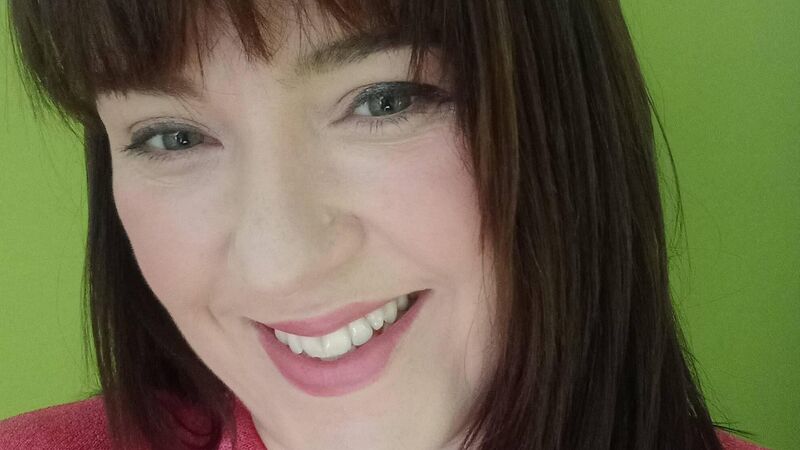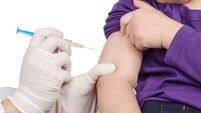What’s with the skin-care obsessed pre-teens?

Carmel Wright.
WALKING past a local pharmacy, my ten-year-old daughter announces with glee that they have “Drunk Elephant.” Now, I know what you’re thinking; of course, any child or adult would be excited at the thoughts of such a prospect. Drunk Elephant conjures images of a rather large wrinkly grey bottom occupying a small bar stool, its grey trunk quaffing pints of Murphys with abandon - but alas, it’s not a circus act; it’s just a skincare product.
Of all the things you’d expect a child to be excited about, skincare is probably not what you’d expect. But social media marketing is encroaching on all age categories with targeted precision these days, creating an army of skincare-obsessed tweens.
Let’s face it: the beauty industry has always been a self-esteem hunter, preying on women. We have been made to feel the cards nature has dealt us - the audacity of having pores, wrinkles, and other so-called ‘imperfections’ - can only be resolved through snake oil lotions, potions, and invasive procedures.
The beauty industry has set its sights on a lucrative and rapidly growing market, young and impressionable minds. It’s the perfect playground for profit from kids’ developing brains, exploiting their vulnerability for financial gain. How? With an army of influencers, some only tweens themselves.
Some skincare companies use their websites to recruit more influencers, with seductive offers of earning commissions and free products for ‘Brand Ambassadors’ from the age of 13. Thrusting these impressionable teens into the limelight for some free swag may seem like a win-win, but who is protecting these ‘ambassadors’ from the cyberbullying, social comparison, and feelings of inadequacy that come with this role at a most vulnerable age?
This targeted messaging to children via influencers is cultivating a culture of beauty ideals that should occupy no space in a child’s mind (nor, ideally, an adult’s, but at least our pre-frontal cortex is developed enough to comprehend that we are being duped by rather clever marketing).
Cunning marketing strategies are creating a generation of skincare-obsessed young girls who are being heavily influenced to spend far too much time and money on lotions and potions, gazing at their reflections in mirrors and selfies, and not on what should matter at this age - reading books, arts and crafts, imaginative play, sports and the great outdoors.
But it’s important to tackle the elephant in the room (drunk or otherwise): this is within parents’ control. The buck does stop with us to limit our children’s access to these platforms, which are by and large unregulated, tapping into the next generation with capitalistic abandon.
The problem is that, even without access to TikTok, Instagram, or any of the usual social media platforms, girls are exposed to considerable peer pressure in school.
I was still playing rounders and discussing the hilarious antics of Dustin the Turkey at ten, while this generation is discussing lip gloss brands and concealing freckles at break time. For those children with a burning desire to fit in and feel included, these products are a gateway to acceptance and are a form of social tender.
Let’s not forget this is a feminist issue - boys are not exposed to these marketing tactics; do they not have skin that also needs this expensive ‘care’? As beauty is an industry that profits off girls and women and their insecurities, created by highly filtered images and expectations set by influencers, social media is cultivating a following of girls who are being groomed to spend on products these girls don’t need, encouraging a culture of unnecessary and unhealthy focus on looks.
My own ten-year-old daughter has a skincare routine, as she has always had dry, sensitive skin that warranted a dab of moisturiser. She uses a plain packaged, non-perfumed product range, and her skin glows as it is so well taken care of. Her demands for Drunk Elephant and Bubble fall on deaf ears, and she has been schooled on the strategic marketing tactics of products.
There is a sense of ritual to these drawn-out skincare routines, which makes me wonder whether they are, in part, about an element of control. It may be a window in their day that punctuates their morning and evening routine, consistent, predictable and a moment to be present and mindful in a distracting world. After all, these are the children who have endured a considerable amount of upheaval in the past few years thanks to Covid-19. Are they trying to soothe their stresses with skincare? Some research suggests that self-care practices like these can be an important and effective treatment of anxiety and negative mood status.
For skincare fun, I have encouraged my daughter to look at kitchen beauty options: masks made of yoghurt, honey, and cucumber and lip scrubs made of sugar and coconut oil. The great thing about this option is that you know the ingredients. They are safe enough to eat and unlikely to damage skin, unlike some of the strong anti-ageing products on the market today.
Some tweens are already reaching for anti-aging cream, which can create rather than solve any imagined skincare issues. Pre-teens ought to completely avoid using anti-aging products. Anti-ageing ingredients such as retinol contain high acid levels that can irritate pre-teens’ skin, and cause premature skin damage. The product reduces the skin’s natural protection against the sun, making retinol users more susceptible to UV rays and sun damage.
In Sweden, the issue has become so large that a leading chain of chemists is introducing age restrictions on anti-ageing skincare.
It is important for us, as parents, to hold the line. We are being worn down, with persistent demands like a form of slow water torture to buckle and agree to the purchase of an often wholly unnecessary, overpriced skincare product. If one of us buckles under the demands of our tween, then we are all likely to buckle. It’s a domino effect that exacerbates peer pressure. The same holds for access to platforms such as Snapchat and TikTok.
Without an audience, these influencers can’t influence. It’s a circuit breaker.
Our girls’ worth cannot be defined by the tightness of their pores or the lack of lines on their foreheads, but by the thoughts in their heads and the sentiments in their hearts.
By putting so much emphasis on looks, we lock another generation of young women into an impossible beauty standard. Marketers can only play our children like puppets if they can access their malleable minds. Let’s keep them off the platforms the skincare pushers are on.
Let’s face it: there is a world of fun to have when you are ten that has nothing to do with social media, skincare, or selfies.







 App?
App?




